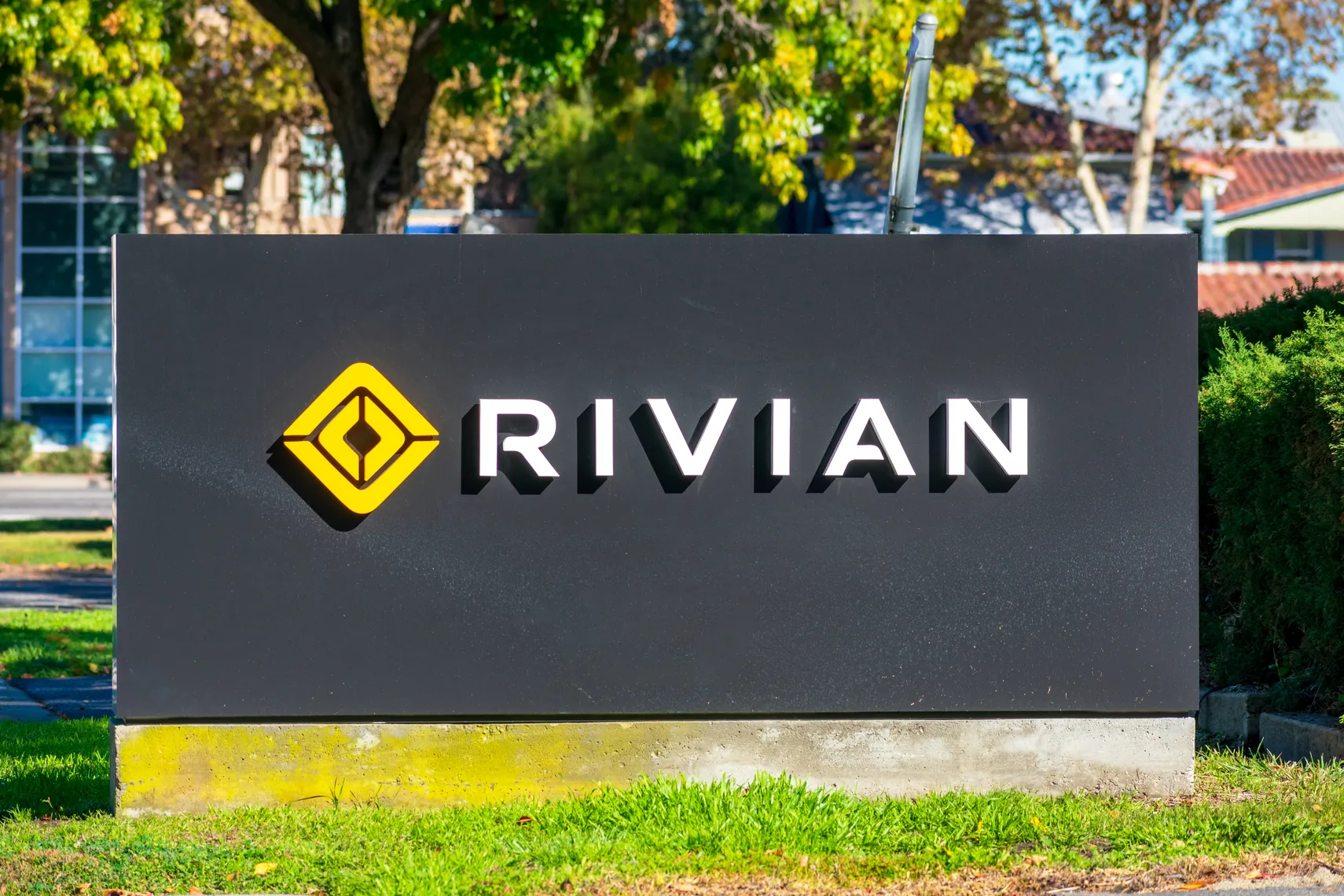Rivian shareholders: who owns the most RIVN stock in 2025?
Rivian Automotive has attracted attention from investors worldwide since its market debut in 2021.
The company’s shareholder base includes major institutional funds, strategic corporate partners and individual investors, each contributing to its growth and evolution as an electric vehicle manufacturer.
As of 12 November 2025, Rivian’s shares trade at $17.01, giving the company a market capitalisation of about $20.8bn. This represents a recovery of more than 63% year on year, outpacing the S&P 500 over the same period. The rebound reflects strong quarterly results and anticipation surrounding Rivian’s upcoming Autonomy & AI Day in December. Past performance is not a reliable indicator of future results.
Let’s take a closer look at Rivian’s ownership structure and who holds the largest stakes in the company today.
What is Rivian Automotive?
Rivian Automotive (RIVN) is a US-based electric vehicle manufacturer and technology company headquartered in Irvine, California. It designs and produces electric adventure vehicles, including the R1T pickup truck and R1S SUV, alongside a growing commercial delivery fleet.
The company went public on 10 November 2021, raising nearly $12bn at an initial public offering price of $78 per share, valuing it at approximately $66.5bn at the time.
Rivian stock price and performance
Rivian’s stock has shown renewed momentum in 2025. As of 12 November 2025, shares trade at $17.01, supported by a market cap of about $20.8bn.
The company delivered around 13,201 vehicles in Q3 2025, reaffirming its full-year guidance (Rivian).
Past performance is not a reliable indicator of future results.
Who owns Rivian Automotive?
As of November 2025, Rivian’s total shares outstanding stand at approximately 1.21bn, with a market value of about $19.91bn. Ownership is broadly divided among mutual funds and ETFs, other institutional investors, and public companies and retail investors .
| Type | Common stock held | % of shares outstanding | Market value |
|---|---|---|---|
| Mutual funds & ETFs | 209.70m | 17.28% | $3.44bn |
| Other institutional investors | 708.76m | 58.41% | $11.63bn |
| Public companies & retail investors | 294.98m | 24.31% | $4.84bn |
| Total | 1.21bn | 100.00% | $19.91bn |
Top institutional holders
Institutional investors hold the majority of Rivian shares. As of November 2025, Amazon.com, Inc (AMZN). remains the company’s largest single shareholder, followed by Porsche Automobil Holding SE (PAH3) and Abdul Latif Jameel IPR Company Limited.
| # | Holder | % of holding | Shares held | Value ($1,000s) |
|---|---|---|---|---|
| 1 | Amazon.com, Inc. | 13.05% | 158,363,834 | 2,598,751 |
| 2 | Porsche Automobil Holding SE | 12.10% | 146,880,123 | 2,410,303 |
| 3 | Abdul Latif Jameel IPR Company Limited | 8.77% | 106,414,600 | 1,746,264 |
| 4 | The Vanguard Group, Inc. | 6.52% | 79,076,202 | 1,297,640 |
| 5 | BlackRock, Inc. | 4.12% | 50,013,984 | 820,729 |
| 6 | Baillie Gifford & Co. | 3.92% | 47,584,480 | 780,861 |
| 7 | UBS Asset Management AG | 2.89% | 35,093,809 | 575,889 |
| 8 | State Street Global Advisors, Inc. | 1.58% | 19,176,409 | 314,685 |
| 9 | Bank of America Corporation | 1.39% | 16,880,349 | 277,007 |
| 10 | Capital Research and Management Company | 1.33% | 16,189,733 | 265,674 |
Top mutual fund holders
Among mutual funds, Vanguard maintains the largest exposure through its index and ETF products.
| # | Holder | % of holding | Shares held | Value ($1,000s) |
|---|---|---|---|---|
| 1 | Vanguard Total Stock Market ETF | 2.36% | 28,680,303 | 470,644 |
| 2 | Vanguard Small-Cap ETF | 1.77% | 21,500,774 | 352,828 |
| 3 | Vanguard Small-Cap Growth ETF | 0.99% | 12,034,956 | 197,494 |
| 4 | The Growth Fund of America | 0.84% | 10,225,277 | 167,797 |
| 5 | Vanguard Extended Market ETF | 0.70% | 8,552,146 | 140,341 |
| 6 | Government Pension Fund Global | 0.64% | 7,779,266 | 127,658 |
| 7 | American Funds Insurance Series – Growth Fund | 0.47% | 5,693,160 | 93,425 |
| 8 | Fidelity Blue Chip Growth Fund | 0.41% | 4,947,259 | 81,185 |
| 9 | UBS (Lux) Equity Sicav – Long Term Themes (USD) | 0.33% | 4,025,678 | 66,061 |
| 10 | Fidelity Extended Market Index Fund | 0.33% | 3,969,789 | 65,144 |
Source: Investing.com, 12 November 2025.
Past performance is not a reliable indicator of future results.
FAQ
What type of company is Rivian Automotive?
Rivian Automotive is a publicly traded electric vehicle manufacturer and technology company listed on the Nasdaq Stock Market under the ticker symbol RIVN. It focuses on producing electric trucks, SUVs and commercial delivery vehicles, supported by its own charging network and software ecosystem. The company’s operations combine automotive manufacturing and clean energy technology, positioning it within the broader electric mobility and sustainability sector.
Who owns Rivian Automotive?
Rivian Automotive is primarily owned by institutional investors, who collectively hold over 65% of the company’s outstanding shares. The remainder is held by strategic partners, including Amazon, Abdul Latif Jameel (IPR Company Limited, part of the Global Oryx Group), and Porsche Automobil Holding SE, along with Rivian insiders, a group that now represents less than 2% of total ownership following recent share dilutions. Amazon remains Rivian’s largest single shareholder.
Who are Rivian’s main competitors?
Rivian’s main competitors include electric vehicle and automotive manufacturers such as Tesla (TSLA), Ford (F), General Motors (GM) and Lucid Motors (LCID), as well as emerging EV start-ups. These companies operate within the highly competitive EV and clean mobility market, where factors such as production scale, technology partnerships and cost efficiency play a significant role. Each manufacturer faces similar challenges related to supply chains, market demand and capital costs.